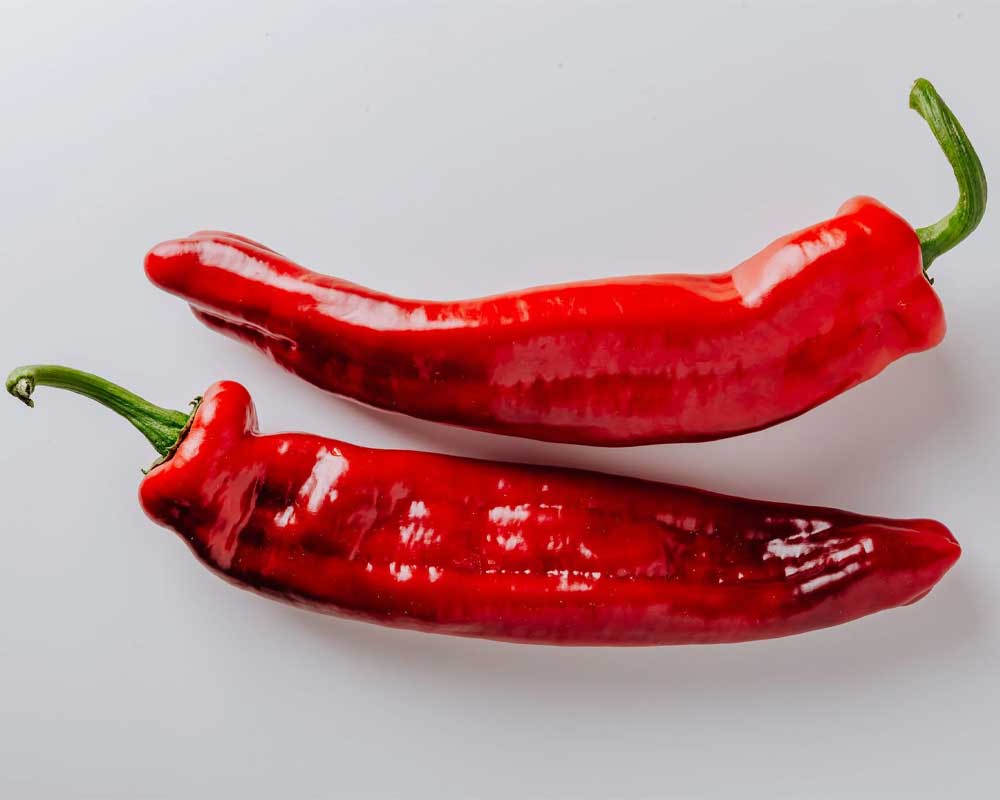
Bell Pepper Nutrition: A Colorful Path to Health and Weight Management
Bell peppers, often admired for their vibrant colors and crisp texture, are not only a feast for the eyes but also a treasure trove of nutrition that can greatly contribute to combating diseases and managing weight. Packed with a rich array of vitamins, minerals, and antioxidants, bell peppers offer a delightful way to boost your health while satisfying your taste buds. In this article, we’ll dive into the captivating world of bell pepper nutrition, exploring how these colorful vegetables can play a vital role in enhancing your well-being.

The Nutritional Powerhouse: What Bell Peppers Bring to the Table
Bell-peppers, available in an array of colors such as red, yellow, green, and orange, boast a remarkable nutritional profile. They are an excellent source of vitamin C, which plays a pivotal role in bolstering the immune system and promoting skin health. Additionally, bell-peppers are rich in vitamin A, essential for maintaining good vision and a healthy immune response.
Fighting Diseases with Bell-Peppers
Aiding Immune Health
The high vitamin C content in bell-peppers acts as a potent antioxidant, aiding the body in combating harmful free radicals and supporting overall immune function. Regular consumption of bell-peppers can help reduce the risk of infections and contribute to quicker recovery from illnesses.
Reducing Inflammation
Bell peppers contain a range of antioxidants and phytochemicals that possess anti-inflammatory properties. These compounds work synergistically to combat chronic inflammation, which is linked to various diseases, including heart disease and certain types of cancer.
Supporting Heart Health
The vibrant red hue of bell-peppers signifies the presence of beneficial compounds such as lycopene and beta-carotene. These compounds have been associated with a lower risk of heart disease by promoting healthy cholesterol levels and supporting the cardiovascular system.
Bell Peppers and Weight Management
Fiber: Your Weight Management Ally
Bell peppers are a fantastic source of dietary fiber, which aids in digestion, keeps you feeling full for longer, and helps regulate blood sugar levels. Incorporating fiber-rich foods like bell peppers into your diet can contribute to effective weight management.
Boosting Metabolism with Vitamin B6
Vitamin B6, found abundantly in bell-peppers, plays a crucial role in metabolism regulation. It aids in breaking down carbohydrates and proteins, ensuring efficient energy utilization. A well-functioning metabolism is essential for maintaining a healthy weight.
Incorporating Bell Peppers into Your Diet
Snacking Smartly: Bell Pepper Strips and Hummus
Slice bell peppers into colorful strips and pair them with a delicious hummus dip. This wholesome snack is not only satisfying but also packed with nutrients that keep you energized throughout the day.
Colorful Additions to Salads
Elevate the nutritional content of your salads by adding bell-pepper slices. Their crunch and vibrant colors will not only enhance the visual appeal of your dishes but also provide a burst of vitamins and antioxidants.
Stuffed Bell Peppers: A Wholesome Meal Idea
Create a delectable dish by stuffing bell-peppers with a mix of lean protein, whole grains, and flavorful herbs. This balanced meal offers a fusion of tastes and textures while delivering a range of nutrients.
Cooking Methods for Maximum Nutrition
Retaining Nutrients through Stir-Frying
To retain the maximum nutritional value of bell peppers, opt for quick and light cooking methods like stir-frying. This preserves the vitamins and antioxidants, ensuring that you reap the full benefits of these colorful vegetables.
Roasting: Enhancing Flavor and Nutrients
Roasting bell peppers brings out their natural sweetness and intensifies their flavor. This cooking technique not only makes them more delicious but also enhances their nutritional content.
Conclusion
Incorporating bell-peppers into your daily diet is a flavorful and nutritious choice that can significantly contribute to disease prevention and weight management. These vibrant vegetables offer a spectrum of vitamins, antioxidants, and fiber that promote overall health. So why wait? Embrace the goodness of bell pepper nutrition and take a colorful step towards a healthier and happier you.
Frequently Asked Questions
1. Can I consume bell peppers if I’m following a low-carb diet?
Absolutely! Bell-peppers are relatively low in carbohydrates and can be enjoyed as part of a low-carb diet.
2. Are there any specific bell pepper varieties with greater health benefits?
While all bell-pepper varieties are nutritious, red bell peppers tend to have higher levels of certain antioxidants like lycopene.
3. How can I store bell peppers to maintain their freshness?
Store bell-peppers in the refrigerator’s vegetable compartment to keep them fresh. Avoid washing them until you’re ready to consume them.
4. Can bell peppers be included in kids’ meals?
Yes, bell-peppers can be a fun and colorful addition to kids’ meals. Slice them into appealing shapes and pair them with dips for a nutritious snack.
5. What is the best way to incorporate bell-peppers into a vegetarian diet?
Bell-peppers can be a staple in vegetarian diets. Use them in stir-fries, salads, wraps, and stuffed dishes for a delightful and nutritious twist.
Read More
Mango Nutrition: Tropical Fruit for Helping With Blood Sugar & Brain Health
Riboflavin (Vitamin B2) Benefits: Preventing Headaches, Heart Health & More
Plum Benefits Your Digestion & Cardiovascular Health
Pineapple: A Tropical Delight Packed with Whole-Body Benefits
Water Chestnuts: Your Natural Pathway to Weight Management, Immunity, and Digestive Wellness
Peach Nutrition: Heart-Healthy, Gut-Friendly and Downright Delicious
